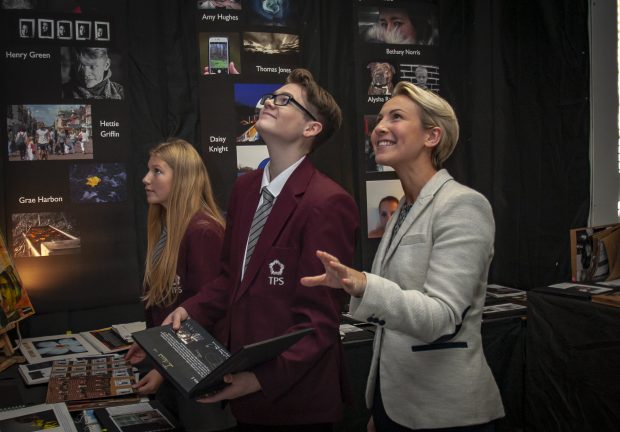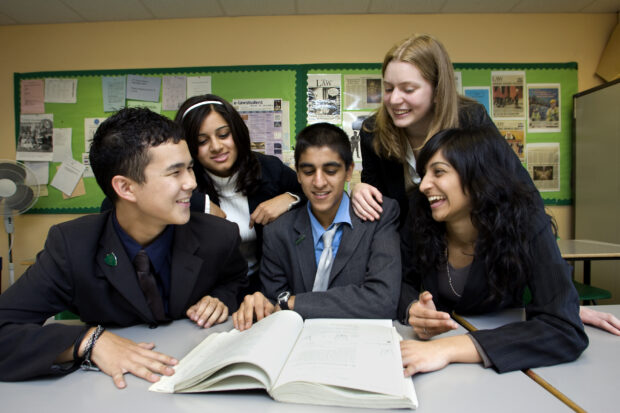
Sean Harford HMI, National Director for Education, discusses how we’ll be judging the curriculum and whether length of key stage matters.
There has been a lot of speculation about whether Ofsted has a fixed view that schools should not have a two-year key stage 3 (KS3). This is simply not the case and I want to address a few misconceptions here.
It’s certainly true that under the new education inspection framework (EIF) the quality of education judgement starts from the premise that schools should offer their children a broad, rich curriculum.
Through our curriculum research, we know that a narrowed curriculum can mean that children miss out on opportunities to study subjects and gain knowledge that could be valuable in later stages of education, or in their adult lives. It can also have a disproportionately negative effect on the most disadvantaged pupils – those who often start school behind their peers.
What will inspectors be looking at?
First of all, there is no ‘preferred length’ of KS3. It’s for schools to decide their own curriculum and how it is enacted across the school. The length of KS3 is certainly not a limiting judgement in our handbook. Schools do not automatically get marked down if their KS3 is less than three academic years long.
We base our final judgement on whether schools offer pupils an ambitious curriculum across their whole time in secondary education – not on the length of any particular stage. We’ll be looking at the curriculum as a whole. Whether it’s rich, ambitious and well sequenced – rather than when each element is delivered.
That said - and regardless of the length of KS3 - our handbook is clear that inspectors will look at how the school is making sure that pupils have the opportunity to study a broad range of subjects – at the very least in line with the national curriculum. We want all pupils to benefit from a good, well-taught curriculum.
In the worst-case scenario of a three-year KS4, a school will simply pull GCSE teaching forward, stretching a two-year course over three. This means that for some pupils, choices made at the end of year 8 are finite. Some will never get the chance to study a whole range of subjects, typically, like art, music or languages again before they leave school.
It’s not the years, it’s the mileage
In the words of Indiana Jones, ‘it’s not the years… it’s the mileage’. We’re interested in the quality, breadth and ambition of the curriculum across a child’s time at secondary school, through both KS3 and KS4.
If schools can show that they’ve thought about curriculum carefully – that they’ve built a curriculum with appropriate coverage, content, structure and sequencing, and implemented it effectively – then it’s likely inspectors will judge their curriculum favourably. We’ll also be looking at whether the curriculum is broad for each and every pupil.
And on an allied issue, we are not making a judgement about the quality of education in any school based solely on its progress with the English Baccalaureate (Ebacc). Though this is, of course, a factor in understanding a school’s curricular ambition for its pupils.
 No preferred length
No preferred length
We’re serious about not having a preferred length of key stage, in practice as well as in theory. Since September, we’ve seen a number of schools judged at inspection to be good or better while making a positive decision to offer a two-year KS3.
It’s a mark of how good the curriculum on offer is in these schools – inspectors thought it better than some schools with a three-year KS3. Crucially, these schools are making sure that a two-year KS3 does not mean a narrow KS3.
Some of the common themes we’ve seen include:
- great breadth and depth of curriculum – for example, giving pupils the opportunity to learn a number of foreign languages and arts subjects
- the wider curriculum being open to all pupils, regardless of academic ability, and being taken up by the vast majority
- a greater proportion of pupils taking the EBacc at KS4
- no subjects being squeezed out of the KS3 curriculum, which means that pupils continue to take a range of subjects, including the arts, at KS4
- KS4 courses going deeper into content and being broader than just the specifications called for by the exam boards or the national curriculum.
These are all positive decisions to preserve richness and breadth. These schools have thought about how they can offer rich, exciting education for all their pupils in a different way – rather than simply starting GCSEs a year earlier, sticking rigidly to the specifications and restricting pupils’ choice.
It’s also fair to say that a three-year KS3 is no panacea. We published a thematic study ‘The wasted years’ back in 2015. Our report found that, while pupils typically study a broad range of subjects at KS3, these years are sometimes a missed opportunity – children are not always getting the best start at secondary education.
In some schools, teaching is not building on the gains that pupils have made in primary school, so their progress stalls. Lessons in subjects like modern foreign languages, history and geography are not always giving pupils the confidence to get to grips with these important foundation subjects. This of course can affect take-up at GCSE.
So, if you find yourself being drawn into a simplistic discussion about the number of years KS3 lasts, then you’re probably having the wrong conversation. If, instead, you’re considering what it is you want pupils to learn, and whether your curriculum is rich, ambitious and well sequenced, then you’re likely heading in the right direction.
Is your school taking a different approach to the curriculum? Tell us in the comments.
Sean Harford is Ofsted's National Director for Education. You can follow Ofsted on Twitter.
6 comments
Comment by @TeacherToolkit posted on
In your published EIF 2019, paragraph 310 Ofsted writes:
"The government’s ambition for all mainstream secondary schools is for 75% of pupils nationally to be entered for the EBacc by 2021."
In the DfE's guidance, it clearly states: "The government’s ambition is to see 75% of pupils studying the EBacc subject combination at GCSE by 2022." See: https://www.gov.uk/government/publications/english-baccalaureate-ebacc/english-baccalaureate-ebacc
This is one year earlier than DfE guidance.
Paragraph 177 of your EIF 2019, Ofsted writes: " Inspectors will not make a
judgement about the quality of education based solely or primarily on its
progress towards the EBacc ambition."
How will Ofsted evaluate breadth and depth at key stage 4 if pupils are not offered EBacc subjects, and the school can demonstrate that it is making progress and making the right choices for their pupils? (yet have thought deeply about their curriculum choices, can demonstrate the wider curriculum being open to all, no subjects being squeezed at KS3, and all KS4 courses going deeper into content).
Comment by Dr Debbie Hawker posted on
Thank you for clarifying that Ofsted does not have a fixed view that schools have a three-year key stage 3. That is a relief to hear. I am a clinical psychologist with over 25 years experience. I have been concerned by the mental health impact of schools feeling under pressure to move to a two-year KS4. These can include increased depression, anxiety, self-harm, eating disorders and other mental health symptoms among students due to increased stress. Year 9 students in a 3-year KS3 can show an increase in anxiety and depression when they have to continue in subjects which they are struggling with instead of being allowed to choose options (e.g. students with dyslexia who are unable to drop a foreign language; students with dyspraxia who have to continue with Art or Technology despite having poor coordination etc). School refusal and bullying may also increase among Year 9 students unable to choose their preferred options to study.
Stress symptoms may also increase among teachers who feel more pressure teaching to a 2 year KS4, and frustration that this may mean having to leave out practical aspects of teaching especially in subjects such as science and geography.
I hope that Ofsted will not penalise schools who consider the mental health of their pupils and staff when making the decision about what is best in their particular situation. A broad, rich curriculum is possible with a 3-year KS4, and may be associated with mental health benefits.
Comment by Bennet Carr posted on
This is a useful clarification. I think it is a shame that the framework refers to a "narrowed" rather than "narrow" curriculum. By definition, the curriculum narrows between KS3 and KS4 in all schools. Those schools that choose to make this transition in Year 9 face the accusation that the curriculum has "narrowed" even if the KS4 curriculum they follow is far from "narrow".
Comment by Anna posted on
I’d be interested to know how any high schools are managing the changes when they arrive in Year 9 from middle schools.
Comment by External Relations posted on
Hi Ross, we will judge schools taking radically different approaches to the curriculum fairly. We recognise the importance of schools’ autonomy to choose their own curriculum approaches. If leaders are able to show that they have thought carefully, that they have built a curriculum with appropriate coverage, content, structure and sequencing, and that it has been implemented effectively, then inspectors will assess a school’s curriculum favourably.
Thanks for pointing out the mistake - we'll change it the next time the handbook is updated.
Comment by External Relations posted on
Hi Anna, we'd still be looking at whether all pupils have access to a broad, rich curriculum.